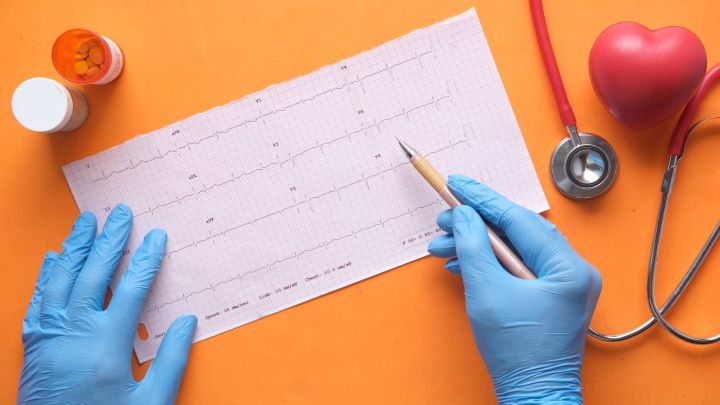Coronary heart disease is not a scary disease, rational use of drugs is the key to a healthy life from the heart.

Cardiovascular disease has surpassed cancer as the first cause of death for patients. There are three firsts in cardiovascular disease, namely the first in mortality, the first in recurrence and the first in disability. Among them, cardiovascular diseases are mainly coronary heart disease, which manifests itself in various forms such as angina pectoris, myocardial infarction and sudden cardiogenic death.
Coronary heart disease is a heart condition caused by atherosclerotic lesions in the coronary arteries causing narrowing or blockage of the lumen of the vessel, resulting in ischaemia, hypoxia and necrosis of the heart muscle. Typical symptoms are chest pain, usually radiating to the left shoulder, inner left arm, neck and jaw; and a feeling of pressure, tightness and stuffiness behind the sternum (not a pinprick-like knife-stabbing pain) that lasts for several minutes and is associated with activity exertion and emotional stress. Other atypical symptoms include a feeling of breathlessness, a feeling of pressure or blockage in the throat, upper abdominal discomfort, toothache (rarely) and even fingertip pain.

Atherosclerosis is associated with a variety of factors, including genetics, diet, smoking and alcohol abuse, and poor lifestyle habits. Simply put, the endothelium of the blood vessels is damaged, and then cholesterol builds up in the damaged areas, platelets gather and form plaques, which can rupture and move to form blood clots; or high blood lipid concentrations slow blood flow and build up on the walls of the blood vessels, blocking them. A blockage of less than 75% is usually asymptomatic; a blockage of more than 75% can lead to sudden death. Some people say that I am still young and will not get blocked, but here we have to make it clear that atherosclerosis happens to almost everyone, not just to the elderly, but also to young people due to high work pressure, late nights and other bad habits.
If you have been diagnosed with coronary artery disease, as I said earlier, if the blockage is greater than 75%, a stent should be placed. Some people say, "Do I need to take medication if I have a stent?

The answer is yes. It is important to understand that medication is the cornerstone of coronary artery disease treatment and is a constant theme.
Specific medication includes the following categories: first, anti-platelet drugs; second, cholesterol-lowering drugs; third, drugs that lower the heart rate and inhibit myocardial remodeling; fourth, anti-angina and symptom relief drugs.
Firstly, anti-platelet drugs
This is a class of drugs that can inhibit platelet aggregation and adhesion to prevent thrombosis and help prevent atherosclerosis and myocardial infarction. As we said earlier, if there is damage to the endothelium of blood vessels, it will lead to platelet aggregation and thus the formation of blood clots. These drugs include: aspirin, clopidogrel, tigretol, cilostazol, etc. When it comes to aspirin, many patients in clinical practice will say: I don't take this drug because it will make me bleed. In fact, we need to understand them correctly. Patients with coronary artery disease have to take these drugs, especially some patients who have just had a stent, in combination with two anti-platelet drugs. During the period of taking anti-platelet drugs, we should observe the colour of the stool and come to the hospital if there is a black stool.

Second, look again at cholesterol-lowering statins
This is a class of effective lipid-lowering drugs that can not only strongly reduce total cholesterol and LDL, but also play a role in stabilising plaque and protecting the endothelium of blood vessels, one of the culprits of atherosclerosis is elevated blood lipids. These drugs include: Rosuvastatin calcium, Atorvastatin calcium, Pravastatin sodium, Simvastatin, etc.
For long-term use of statins, we need to be aware that
(i) Blood tests are required every 3 months to monitor normal liver function levels.
② Pay attention to low-density lipoprotein (LDL-C) levels
<1.8 mmol/L.>One point to note is that these two types of drugs for patients with coronary heart disease need to be taken for life and cannot be discontinued.

Third, there is also a class of drugs that lower the heart rate
This is a class of beta-blockers, which can slow the heart rate, reduce exercise-induced myocardial contractility, thereby reducing myocardial oxygen consumption, as well as resist the effects of myocardial remodeling. Commonly used drugs in this category include: metoprolol tartrate, metoprolol succinate extended-release tablets, and bisoprolol fumarate. When taking such drugs, we need to be concerned about avoiding sudden discontinuation. If such drugs need to be discontinued they should be discontinued after a gradual reduction in dosage, otherwise they are likely to cause a rebound in heart rate and blood pressure.
Fourth, look at the anti-angina class of drugs, which is a class of nitrate drugs, can be anti-angina, improve myocardial ischemia, relieve chest tightness and chest pain symptoms. This type of drugs commonly used include: nitroglycerin, isosorbide mononitrate, etc. It is important to note that nitrates may cause vasodilatory headaches at the beginning of the course, which may disappear after a few days of continuous use, and that rest should be taken afterwards, as their vasodilatory effect may cause dizziness and falls.

The last point to reiterate is that medication is essential for patients with coronary heart disease, whether they have had a stent or not, and is the cornerstone of coronary heart disease treatment. Coronary heart disease is not to be feared, but the rational use of medication is the key to a healthy life starting from the heart.
